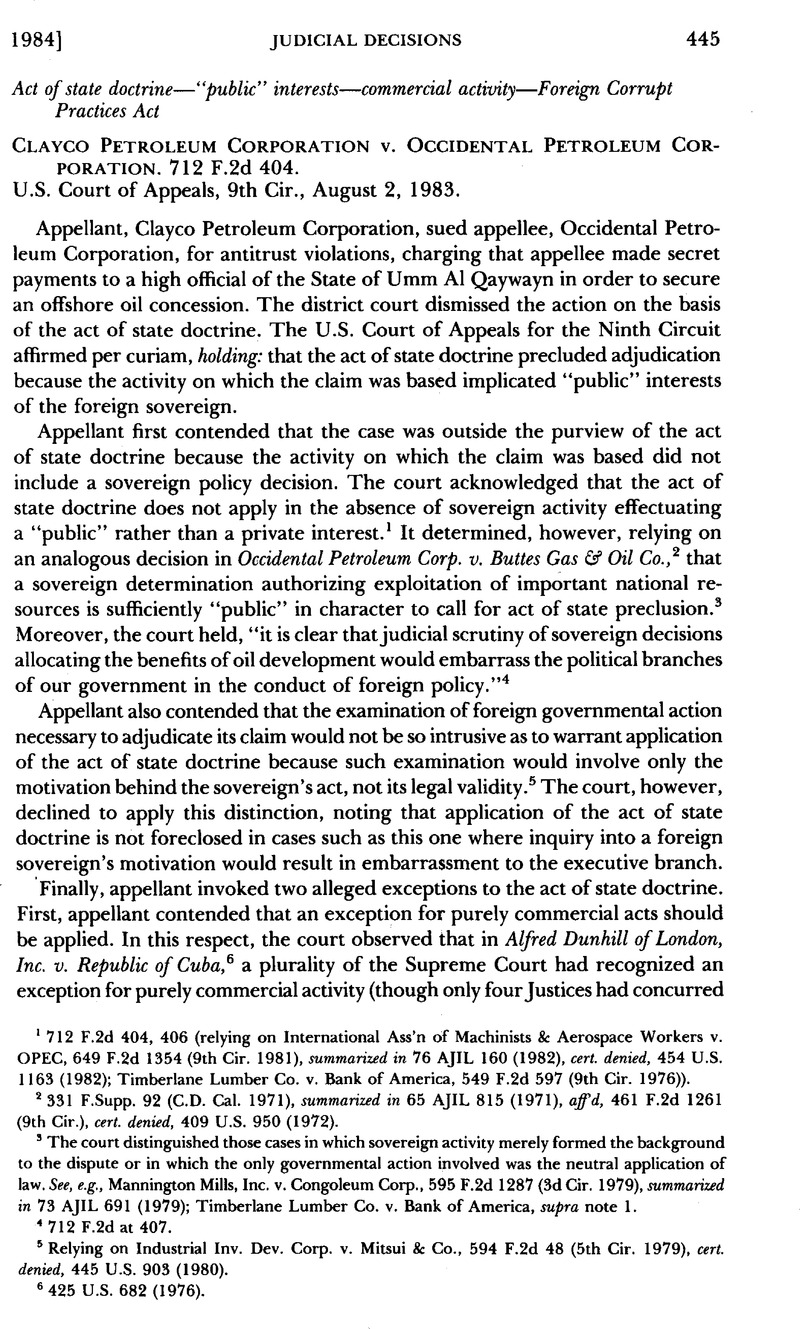Published online by Cambridge University Press: 27 February 2017

1 712 F.2d 404, 406 (relying on International Ass’n of Machinists & Aerospace Workers v. OPEC, 649 F.2d 1354 (9th Cir. 1981), summarized in 76 AJIL 160 (1982), cert, denied, 454 U.S. 1163 (1982); Timberlane Lumber Co. v. Bank of America, 549 F.2d 597 (9th Cir. 1976)).
2 331 F. Supp. 92 (CD. Cal. 1971), summarized in 65 AJIL 815 (1971), aff’d, 461 F.2d 1261 (9th Cir.), cert, denied, 409 U.S. 950 (1972).
3 The court distinguished those cases in which sovereign activity merely formed the background to the dispute or in which the only governmental action involved was the neutral application of law. See, e.g., Mannington Mills, Inc. v. Congoleum Corp., 595 F.2d 1287 (3d Cir. 1979), summarized in 73 AJIL 691 (1979); Timberlane Lumber Co. v. Bank of America, supra note 1.
4 712 F.2dat 407.
5 Relying on Industrial Inv. Dev. Corp. v. Mitsui & Co., 594 F.2d 48 (5th Cir. 1979), cert, denied, 445 U.S. 903 (1980).
6 425 U.S. 682(1976).
7 1 2 F.2dat408.
8 Because the rule espoused by the Dunhill plurality would not apply in any event, the court did not consider it necessary to decide whether the Ninth Circuit should adopt a commercial activity exception to the act of state doctrine.
9 15 U.S.C. §§78dd–l et seq. (1982). The court noted in passing that neither the Supreme Court nor any federal court of appeals had ever before addressed this issue.
10 712 F.2d at 409.
11 The court also determined that appellant’s interpretation of the purpose of the Foreign Corrupt Practices Act was not supported by its legislative history.